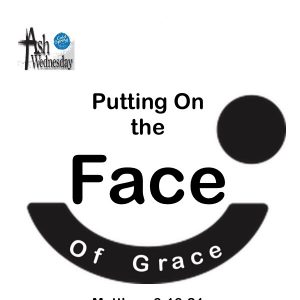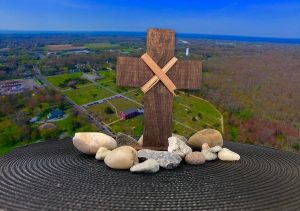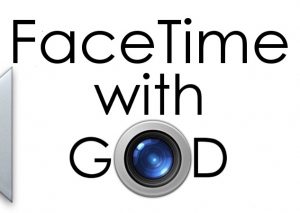Click Play to Listen. To Download Messages, Click The Download Button Then Click The Down Arrow Icon On The Window That Pops Up
 “And whenever you fast, do not put on a dismal face like the hypocrites, for they disfigure their faces so as to show others that they are fasting. Truly I tell you, they have received their reward. But when you fast, put oil on your head and wash your face, so that your fasting may be seen not by others but by your Father who is in secret; and your Father who sees in secret will reward you. “Do not store up for yourselves treasures on earth, where moth and rust consume and where thieves break in and steal; but store up for yourselves treasures in heaven, where neither moth nor rust consumes and where thieves do not break in and steal. For where your treasure is, there your heart will be also” (Matthew 6:16-21).
“And whenever you fast, do not put on a dismal face like the hypocrites, for they disfigure their faces so as to show others that they are fasting. Truly I tell you, they have received their reward. But when you fast, put oil on your head and wash your face, so that your fasting may be seen not by others but by your Father who is in secret; and your Father who sees in secret will reward you. “Do not store up for yourselves treasures on earth, where moth and rust consume and where thieves break in and steal; but store up for yourselves treasures in heaven, where neither moth nor rust consumes and where thieves do not break in and steal. For where your treasure is, there your heart will be also” (Matthew 6:16-21).
Our neighbors are feeling more and more like strangers to one another every day. People report loneliness as a persistent experience more than 50% of the time. And our churches, for all their historical and intentional presence, have also become strangers in the community. Hoe can we turn strangers into friends? How can our places of mission and worship become more welcoming? Reach out and introduce yourself to a neighbor. Realize others are as awkward as you may be and still make the connection. Go ahead. During the Lenten journey, during the next 40 days, you may want to turn strangers into fellow travelers, companions, friends, to embrace God’s emerging future that leads to the cross and the empty tomb. “Don’t be a mean-faced people, cruel to grandmothers and babies alike” (Deut. 28:50). But, “Do be a place where the face of God can smile on others” (Num. 23:5). Putting on the Face of Grace is the Lenten Journey.
 Around the tables you will find a pile of stones. Choose one to represent your burdens, your weights and fears, your stranger dangers, and remember as you carry this stone with you, that on Easter, at the end of the Lenten Journey, the stone was rolled away!
Around the tables you will find a pile of stones. Choose one to represent your burdens, your weights and fears, your stranger dangers, and remember as you carry this stone with you, that on Easter, at the end of the Lenten Journey, the stone was rolled away!
Honestly. Let’s ask ourselves:
What face does my neighborhood need to see in me today?
How will I put on the Face of Grace during the next 40 days?
 Mardi Gras is all the buzz this week. From New Orleans to Cape May, the festive celebrations that precedes Lent’s constraints is a lot to take in as groups of people interact at arm’s length along streets and balconies. All of us want to feel connected, but noisy, chaotic, whirlwinds of activity is not what we are truly looking for. Each of us, and every community, longs for something substantial, sustainable, and shareable. We want to be “face to face” with experiences and people that bring us love, peace, forgiveness, justice, and hope.
Mardi Gras is all the buzz this week. From New Orleans to Cape May, the festive celebrations that precedes Lent’s constraints is a lot to take in as groups of people interact at arm’s length along streets and balconies. All of us want to feel connected, but noisy, chaotic, whirlwinds of activity is not what we are truly looking for. Each of us, and every community, longs for something substantial, sustainable, and shareable. We want to be “face to face” with experiences and people that bring us love, peace, forgiveness, justice, and hope.
Imagine what it would be like to have FaceTime with God? While you can’t pick up your phone and dial God, if you could, that kinda sounds terrifying, right! What would you say? How would you act? FaceTime with God is the title of the message from from Luke 9 and Exodus 24. It will take us from Mardi Gras to the mountain of God with Moses and Jesus. Let’s follow Moses up to the mountain where he experiences God’s incredible and indescribable holiness. When he came back down the mountain, everyone knew something was shockingly different! The people in the camp couldn’t even look at his face because it was so bright! Moses had to put a covering on just to get through his day. Then we visit Moses who joins Elijah who have a conversation with Jesus and his companions on another mountain. In a similar manner, the majestic glory of God was dazzlingly bright. Wow!
FaceTime with God might appear to be a risky idea except that God is good and accessible to us. Where we see God, where we see Jesus “face to face,” is not just in “religious” settings, a beautiful sanctuary, or even in some miraculous vision. Where we see God, where we discover Jesus’ presence most brightly, is in our daily, face-to-face encounters with God’s word, creation, our neighbors, our enemies, our friends, the faces of each and every child of God on this earth. Let’s see God’s face and show God’s face as we make a difference in our neighborhoods in the name of Jesus Christ. You are invited to come as you are and get involved. There is a place for you, here! (If you’re new to our church, discover more about what we believe and why we do what we do by visiting a special Welcome First-Time Guests page on our website, here.)
Listen to this message and discover how and why to have FaceTime with God. You got this!
 Where did Mardi Gras come from? Well, it means Fat Tuesday. Why is it called Fat Tuesday? Because people wanted to eat-up all the foods they decided not to eat during the 40-days of Lent so they had festive parties to empty their cupboards and refrigerators. They also decided not to wear fancy clothes and jewelry during Lent. Lent is Latin for the number “40”, and the 40-day Lenten Journey begins on Ash Wednesday and concludes at Holy Week and Easter when Jesus was raised from the dead! So let’s get ready for what’s ahead by sharing these beads to celebrate that Jesus walks with us every day. We should share that message with others, too. These beads will help. Would you help me give away these beads to the congregation today?! What do the beads say on them? Peace, Justice, Power, Hope, Love! God loves us and is powerful to protect us and give us peace, justice, and hope!
Where did Mardi Gras come from? Well, it means Fat Tuesday. Why is it called Fat Tuesday? Because people wanted to eat-up all the foods they decided not to eat during the 40-days of Lent so they had festive parties to empty their cupboards and refrigerators. They also decided not to wear fancy clothes and jewelry during Lent. Lent is Latin for the number “40”, and the 40-day Lenten Journey begins on Ash Wednesday and concludes at Holy Week and Easter when Jesus was raised from the dead! So let’s get ready for what’s ahead by sharing these beads to celebrate that Jesus walks with us every day. We should share that message with others, too. These beads will help. Would you help me give away these beads to the congregation today?! What do the beads say on them? Peace, Justice, Power, Hope, Love! God loves us and is powerful to protect us and give us peace, justice, and hope!
All of us want to invest in worthwhile activities because we will earn a proportional return. Paul, the apostle, in his letter to the house church in Galatia, used an agricultural analogy of planting and harvesting. Let’s consider his guidance if he used an analogy of investing and return, as follows: Make no mistake, God is not mocked. A person earns an interest on their investment. Those who invest only for their own benefit will earn a return of devastation from their selfishness, but those who invest for the benefit of the Spirit will gain a future, eternal life from the Spirit. Let’s not get tired of investing in the future, because in time it will be worth it, if we don’t give up (based on Galatians 6:7-9). This week we will consider how investing in the future is a core principle in Scripture as we look at the story of Joseph and the powerful words of Jesus. You may remember Joseph as the favored son with the multi-colored coat, but his focus on the future gave him courage to forgive. The future was also in view when Jesus shocked his audience when he said things like, “Forgive your enemies. Pray for those who attack you.”
Across our country and around the corner, in classrooms and living rooms, there is a climate of rushing to judgment. When have you “turned the other cheek” or extended mercy? Can you recall a time you have received mercy and forgiveness? There is a better way. We can find reconciliation and acceptance from Jesus. Find it here!
And thanks for listening to this important message, and trying with me, and all of us, to put it into practice!

